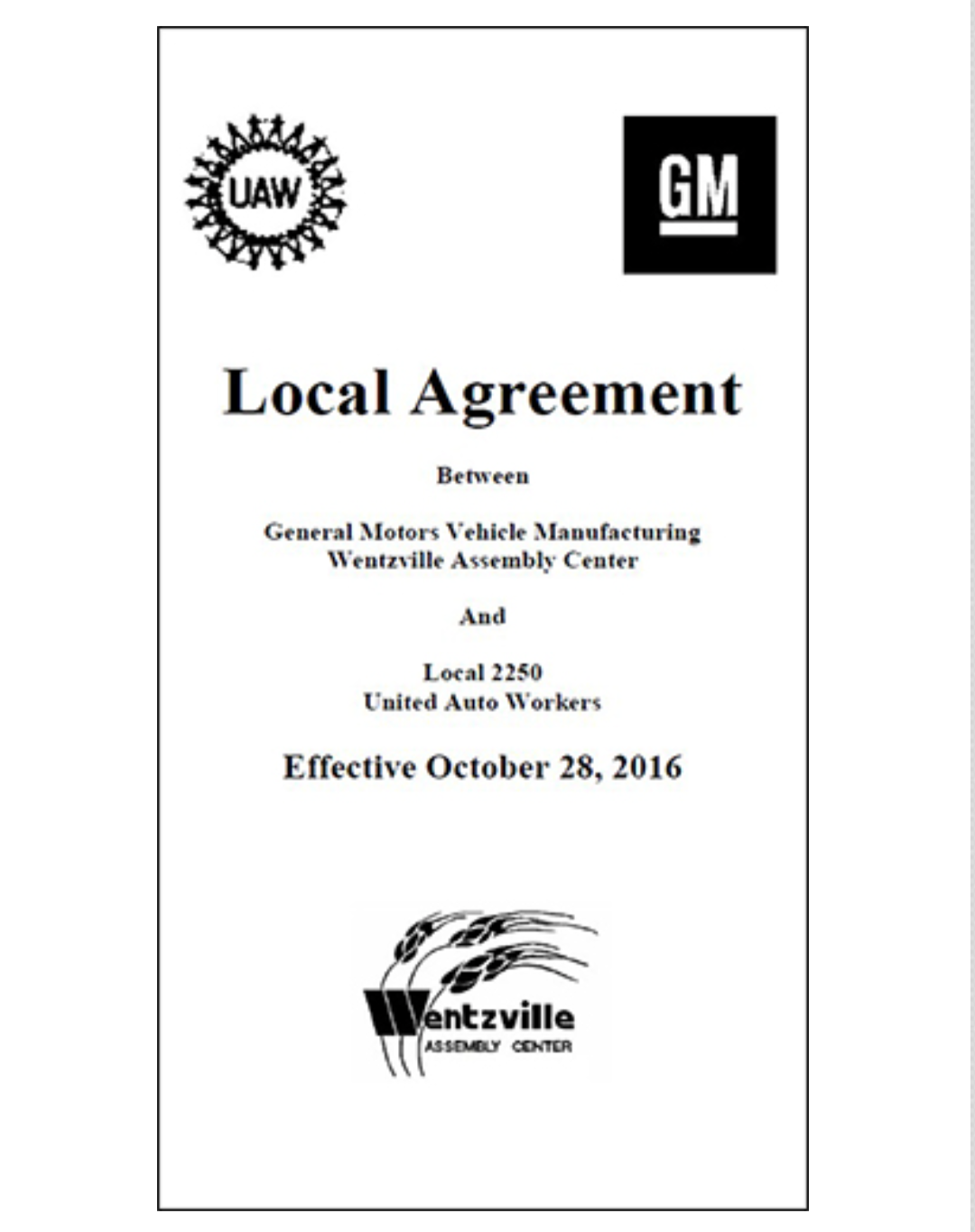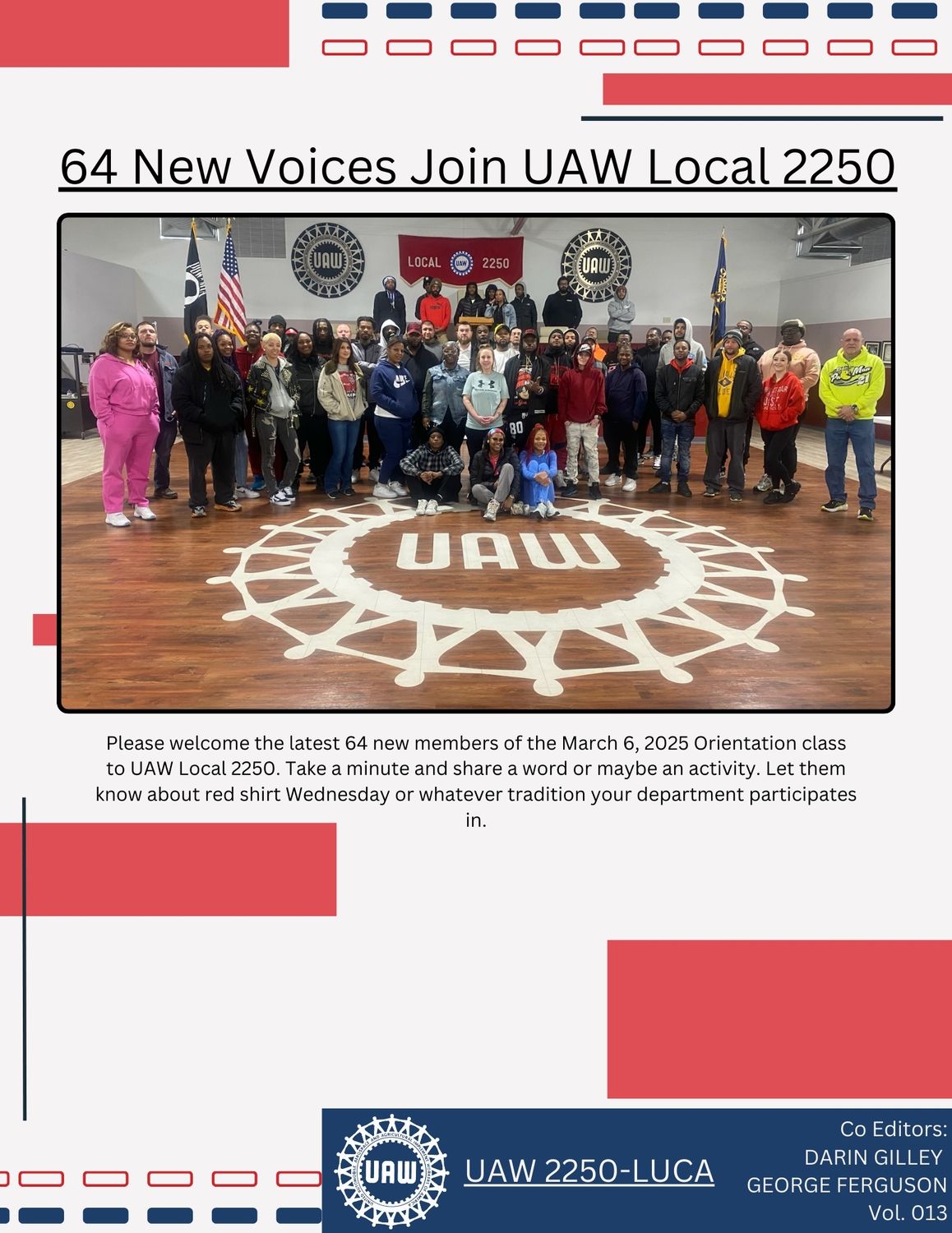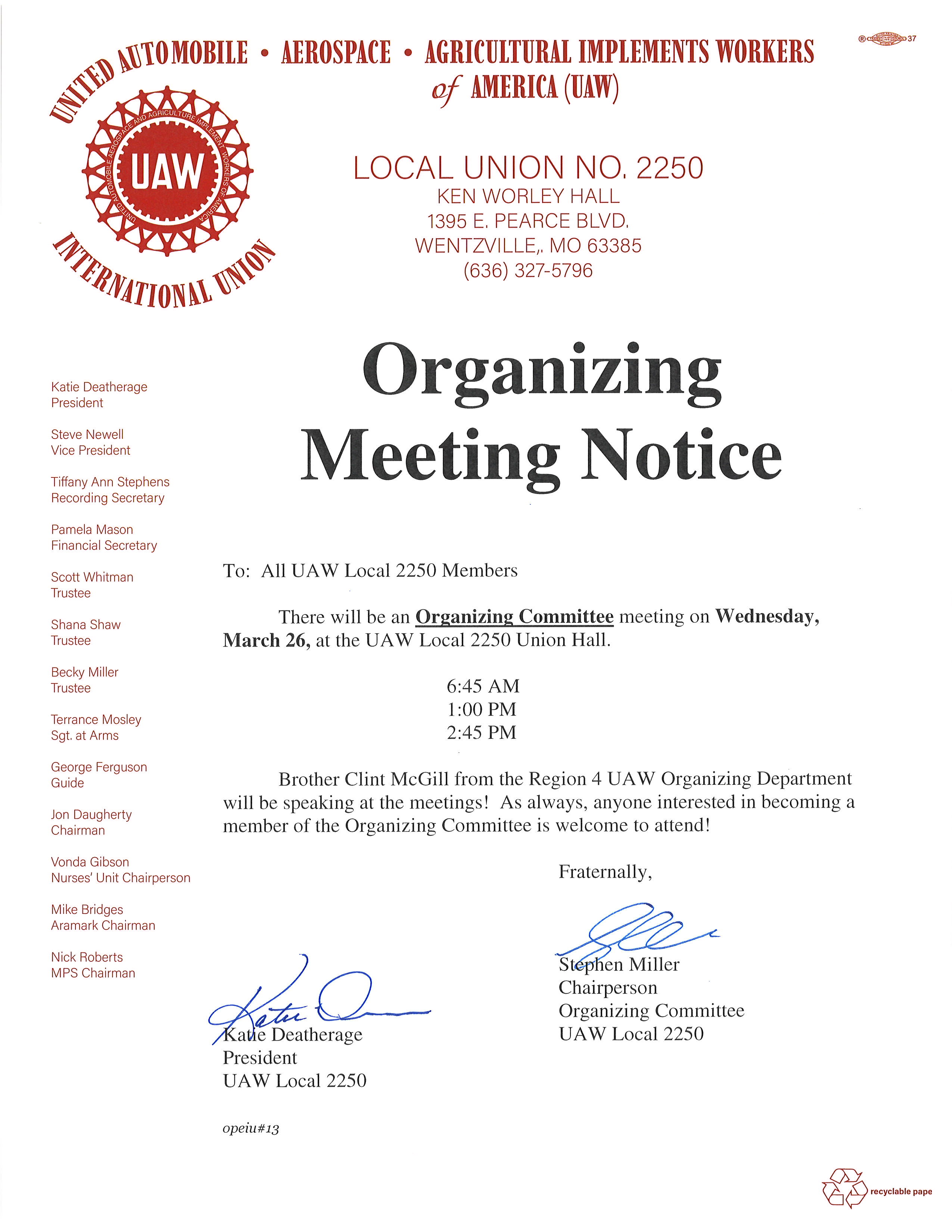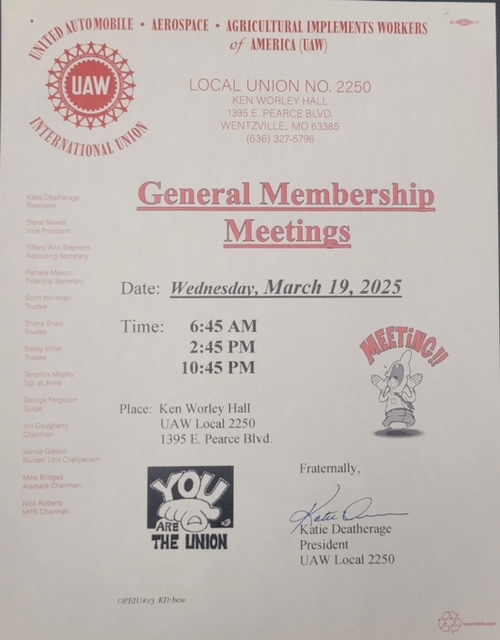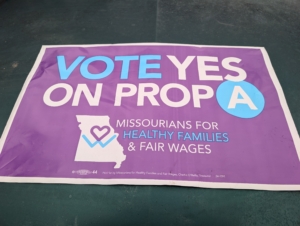-
Look At This: Your 401k Will Be Richer In One Contract Than Most Americans - 13 hours ago
-
You Can Carry Your UAW/GM Wentzville Local Agreement 24-7-365 - April 1, 2025
-
Did Your Bid Win? - March 31, 2025
-
Shawn Fain, Trump, and Tariffs: What’s The Truth? - March 30, 2025
-
Guest Opinion: Lawmakers Shouldn’t Undermine Missouri Voters - March 29, 2025
-
April Showers Bring More Activities! - March 28, 2025
-
The 2025 Missouri AFL-CIO Joint Legislative Report - March 27, 2025
-
P2: Phased Retirement For Tier 2/Progressive Members – A New Trend? - March 23, 2025
-
Sunday Guest Opinion: Education Department Cuts Damage The Working Class - March 22, 2025
-
Newsline #13: New Members, Paid Leave, and The State Capitol! - March 21, 2025
Should Missouri Provide Unemployment Benefits to Strikers: Yes!
If the company can make up units lost during a strike doesn’t it make sense that strikers should get unemployment benefits while striking? What is good for the goose is good for the gander is a phrase that applies. The Economic Policy Institute brings us Extending Unemployment Insurance to striking workers would cost little and encourage fair negotiations.
Unions and collective action have long served as a vehicle for ensuring prosperity for working families and creating a more equal economy. Despite these critical functions, workers engaged in collective action, like strikes, have historically been barred from accessing safety net programs like unemployment insurance (UI). In a welcome development, state lawmakers are beginning to rethink this convention, recognizing the dual roles of UI in stabilizing the economy and unions in securing broad-based economic growth.
Collective action—such as going on strike—is one of the most effective means to counter the inherent power imbalance between workers and employers. But the decision to strike is fraught with risk. U.S. labor law offers limited protections to striking workers and excludes many occupations from the right to strike at all. When workers do strike, their paychecks stop and employers can cut benefits—including health coverage for their entire families. In some cases, striking workers can be permanently replaced and lose their job altogether. As such, the decision to walk off the job is typically a measure of last resort, exercised only after workers have exhausted all other avenues of negotiation.
Obviously, with the world’s largest strike fund and a $500 weekly strike benefit the UAW is better able to handle an extended strike. Most unions are not in that position and if workers can receive unemployment it would reduce some of the stress that comes with fighting for economic justice.

( free graphic courtesy of Clipart library)


